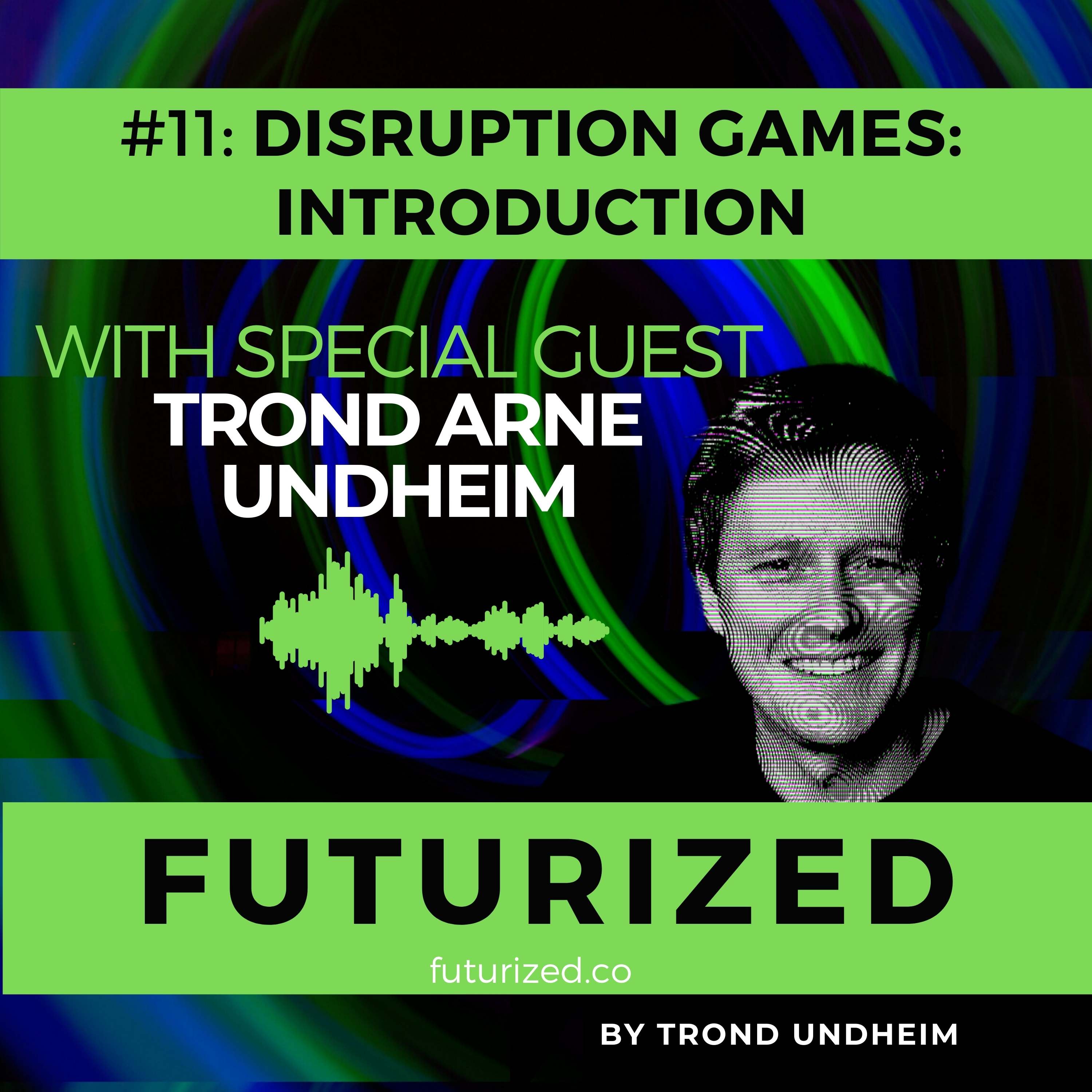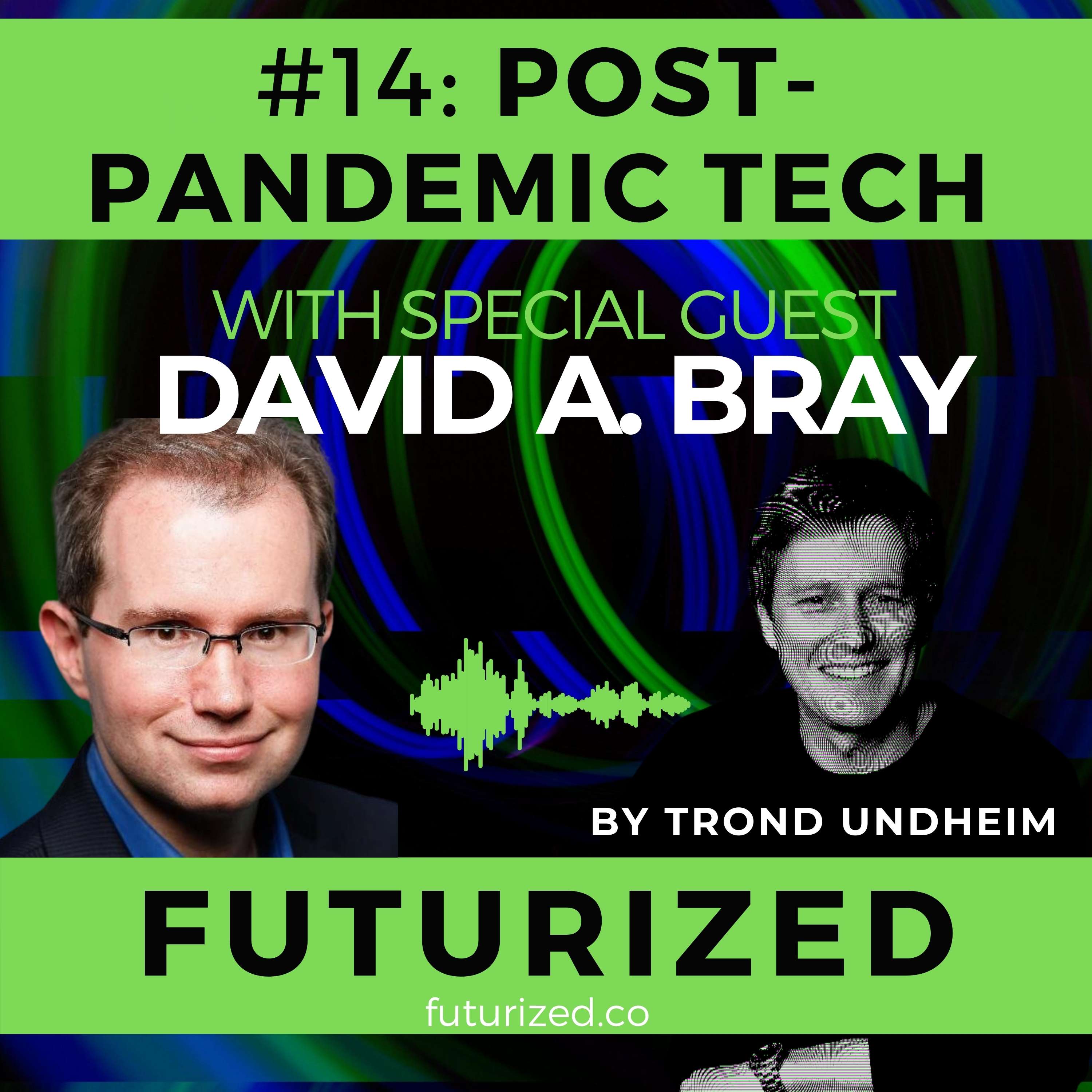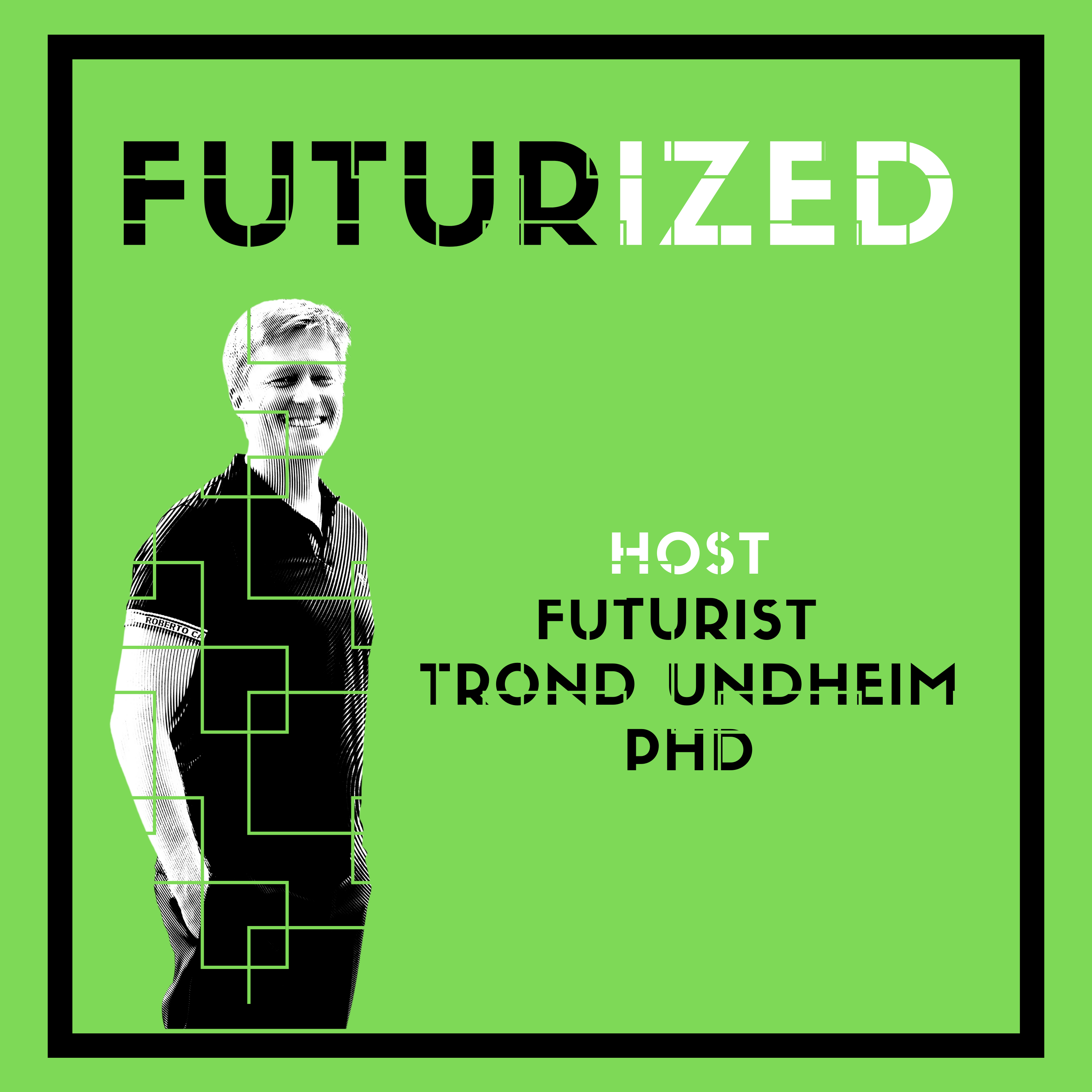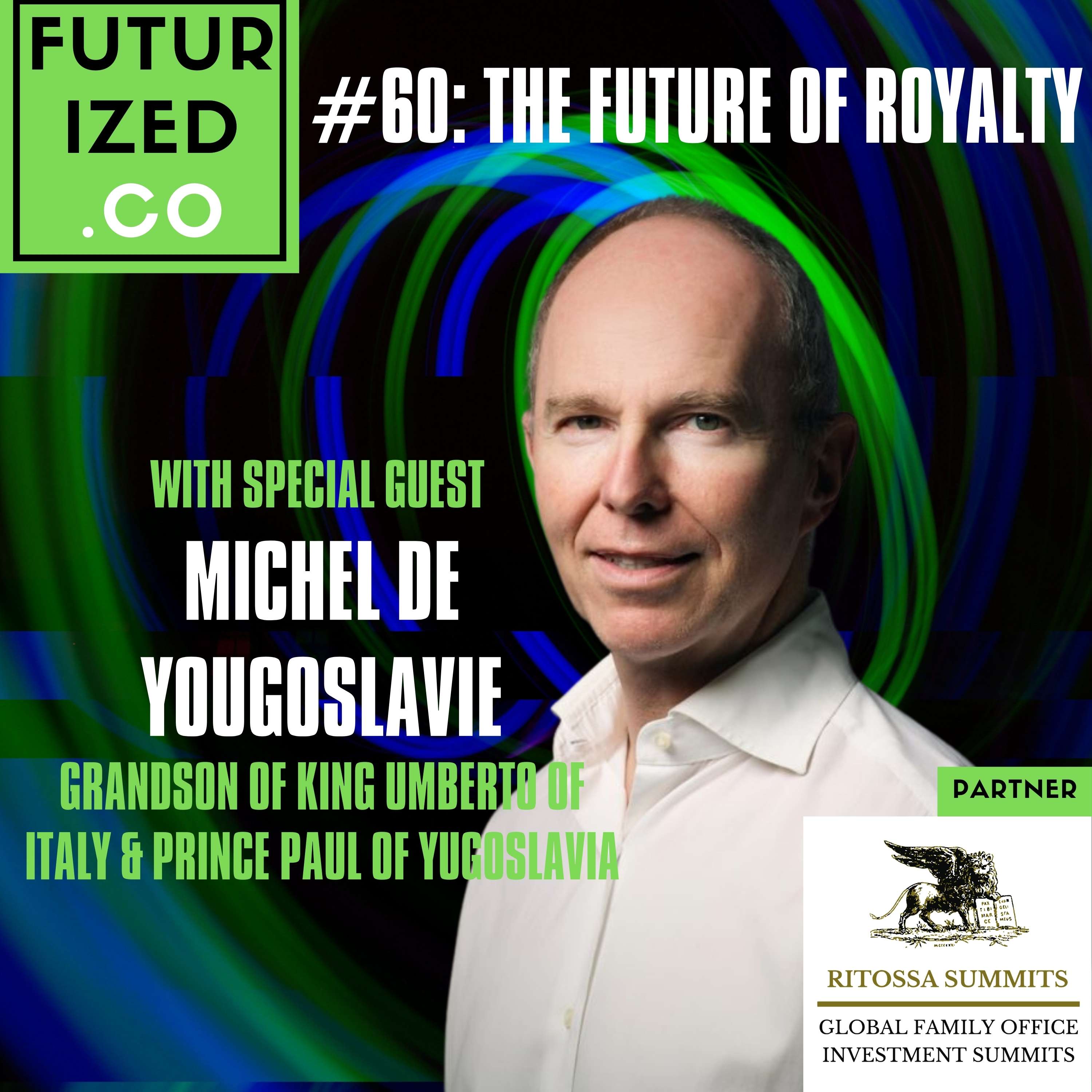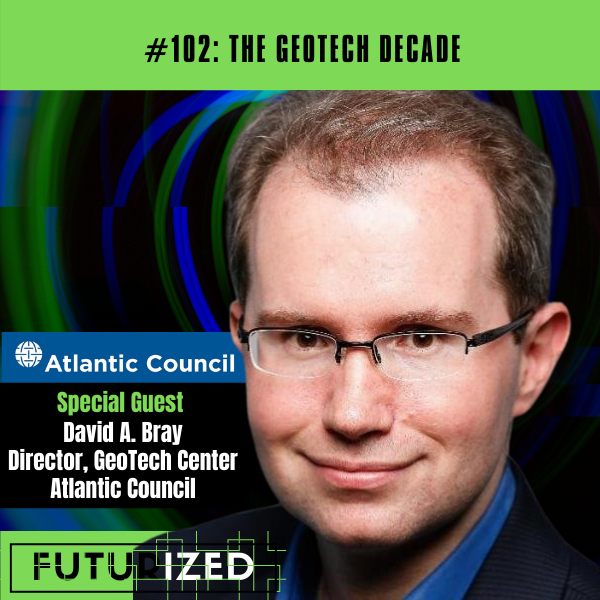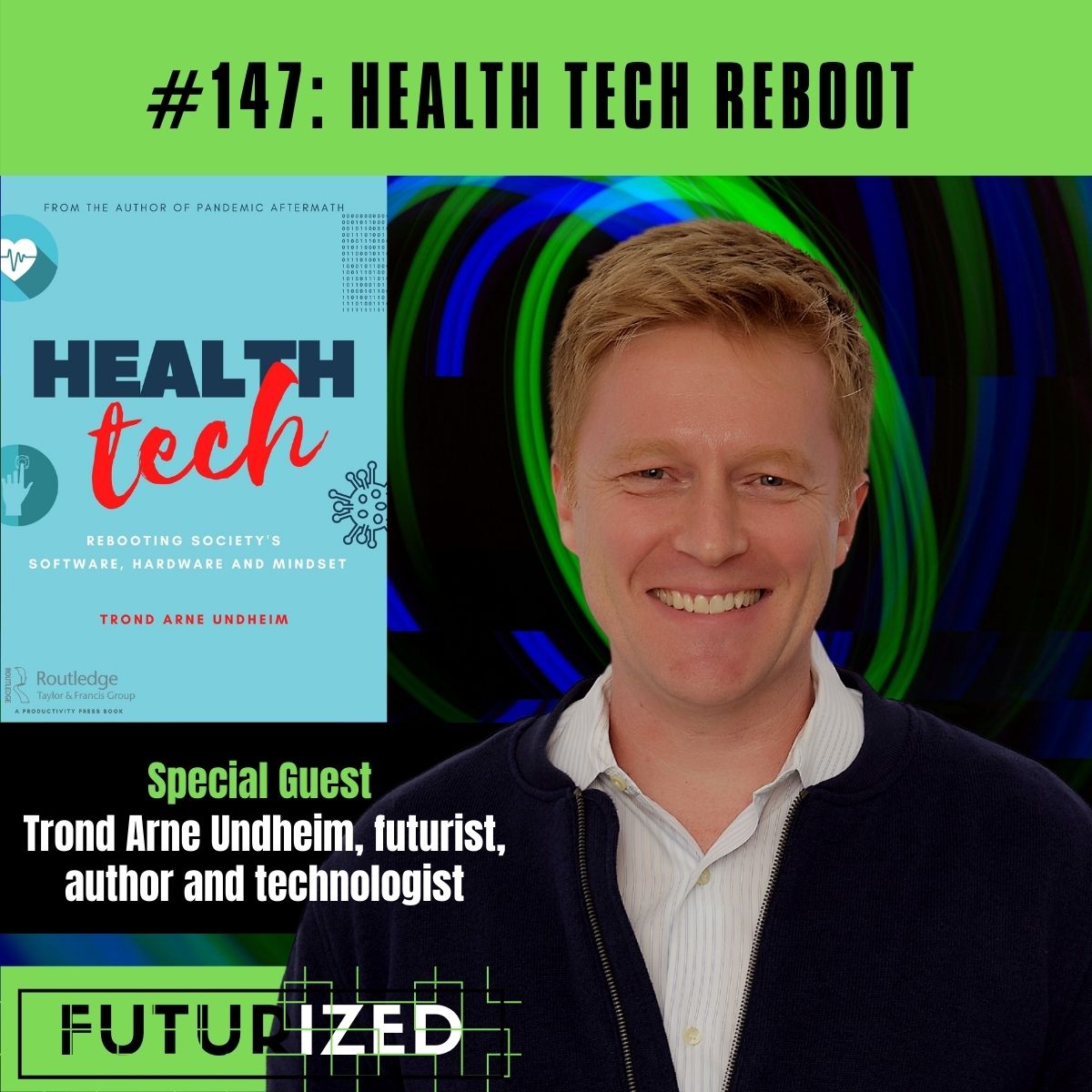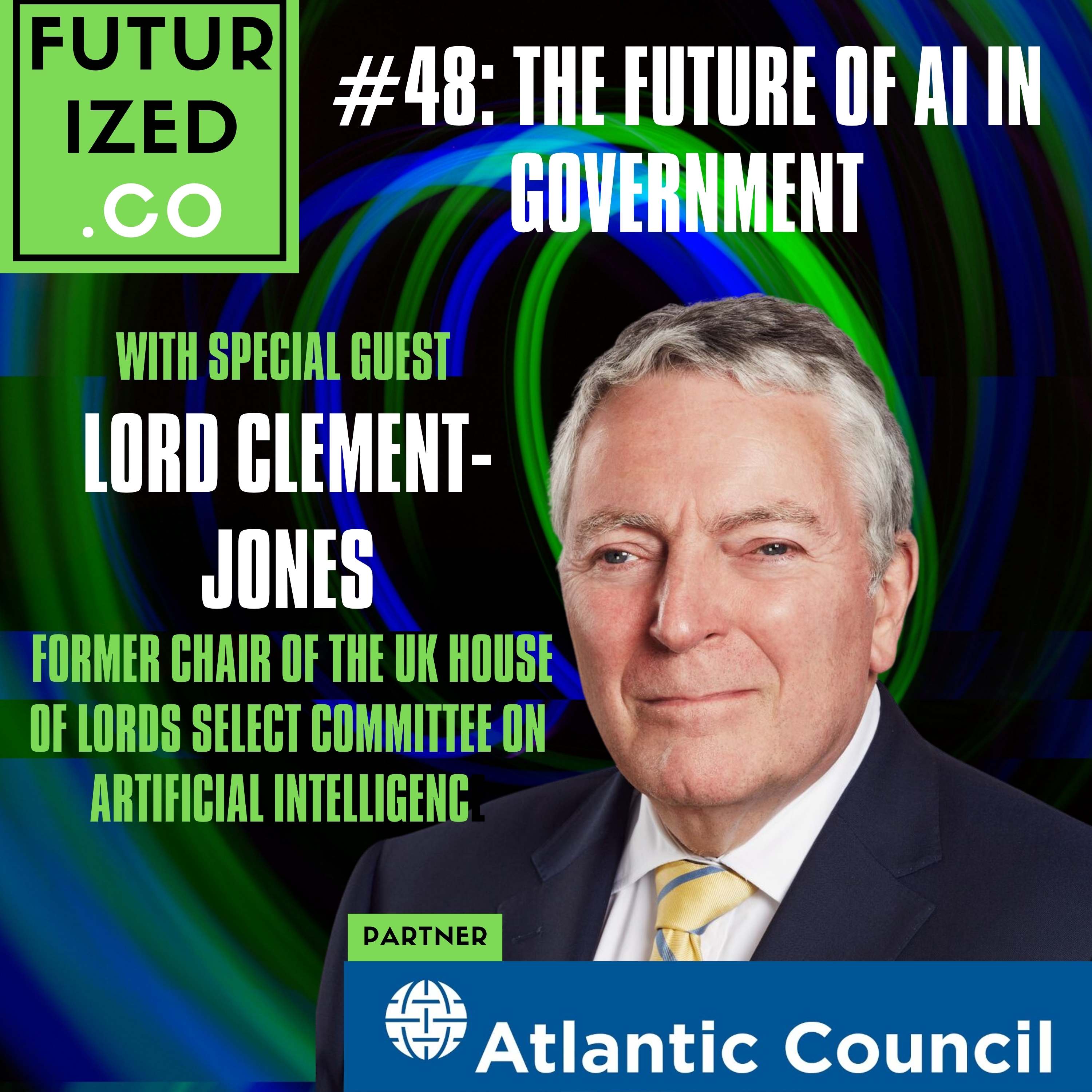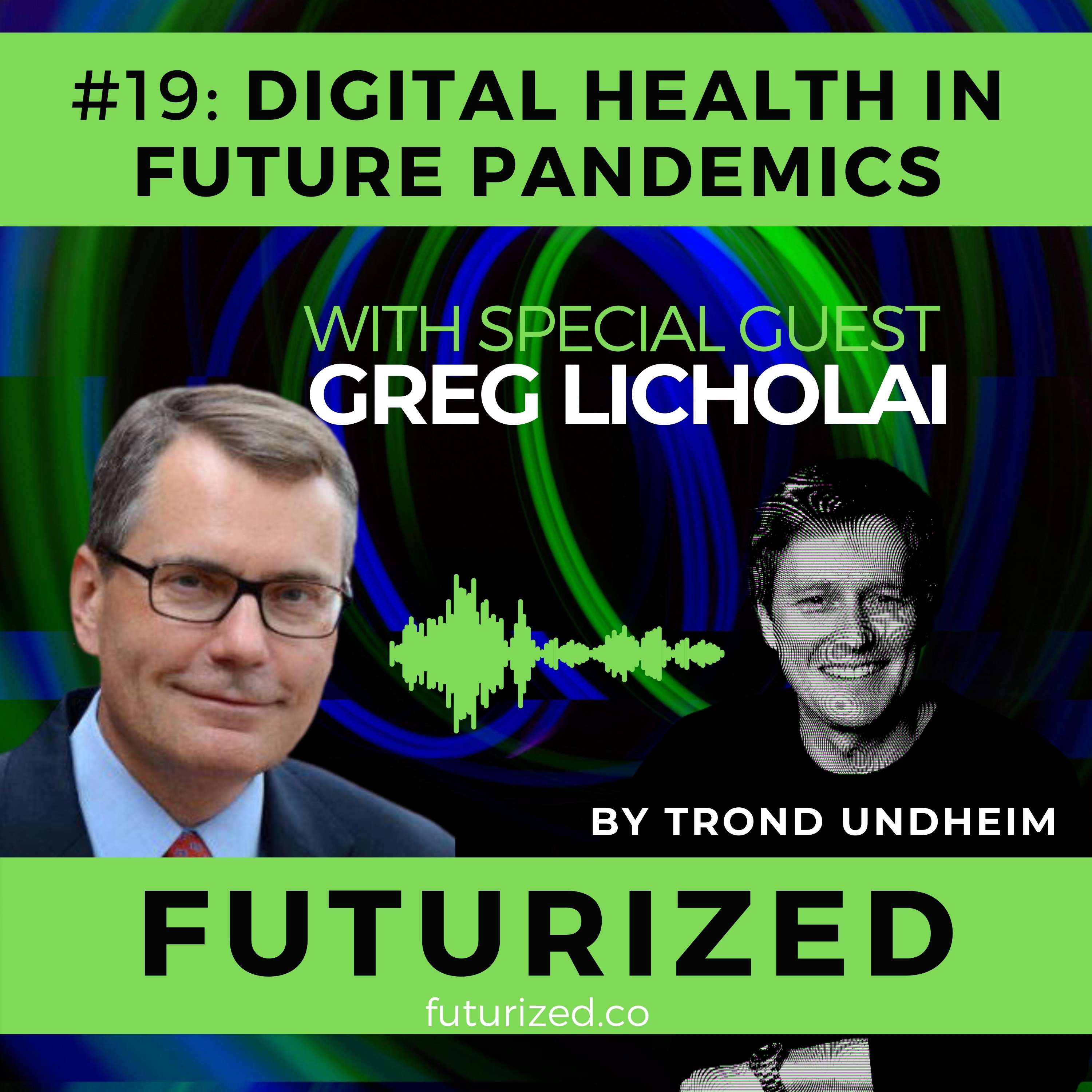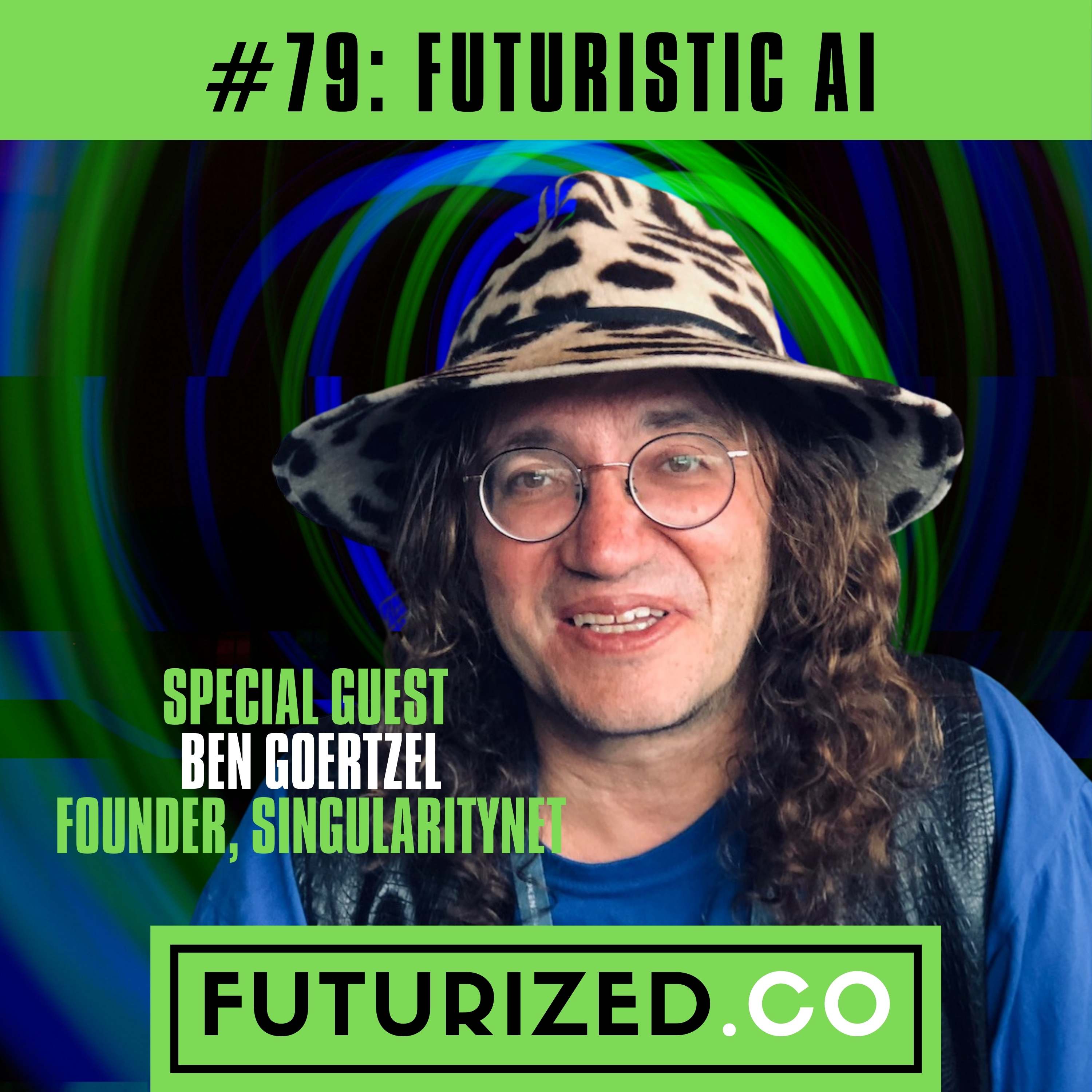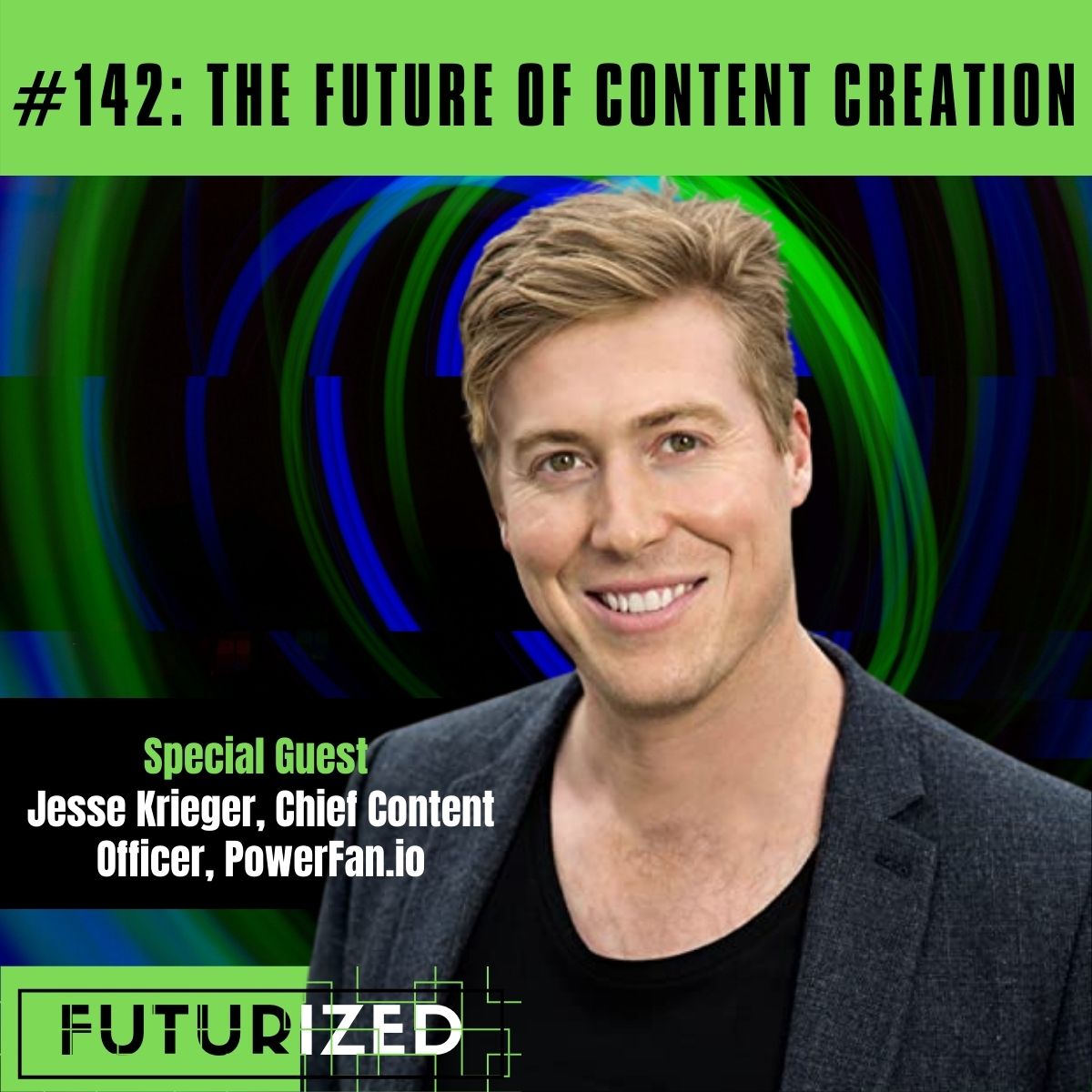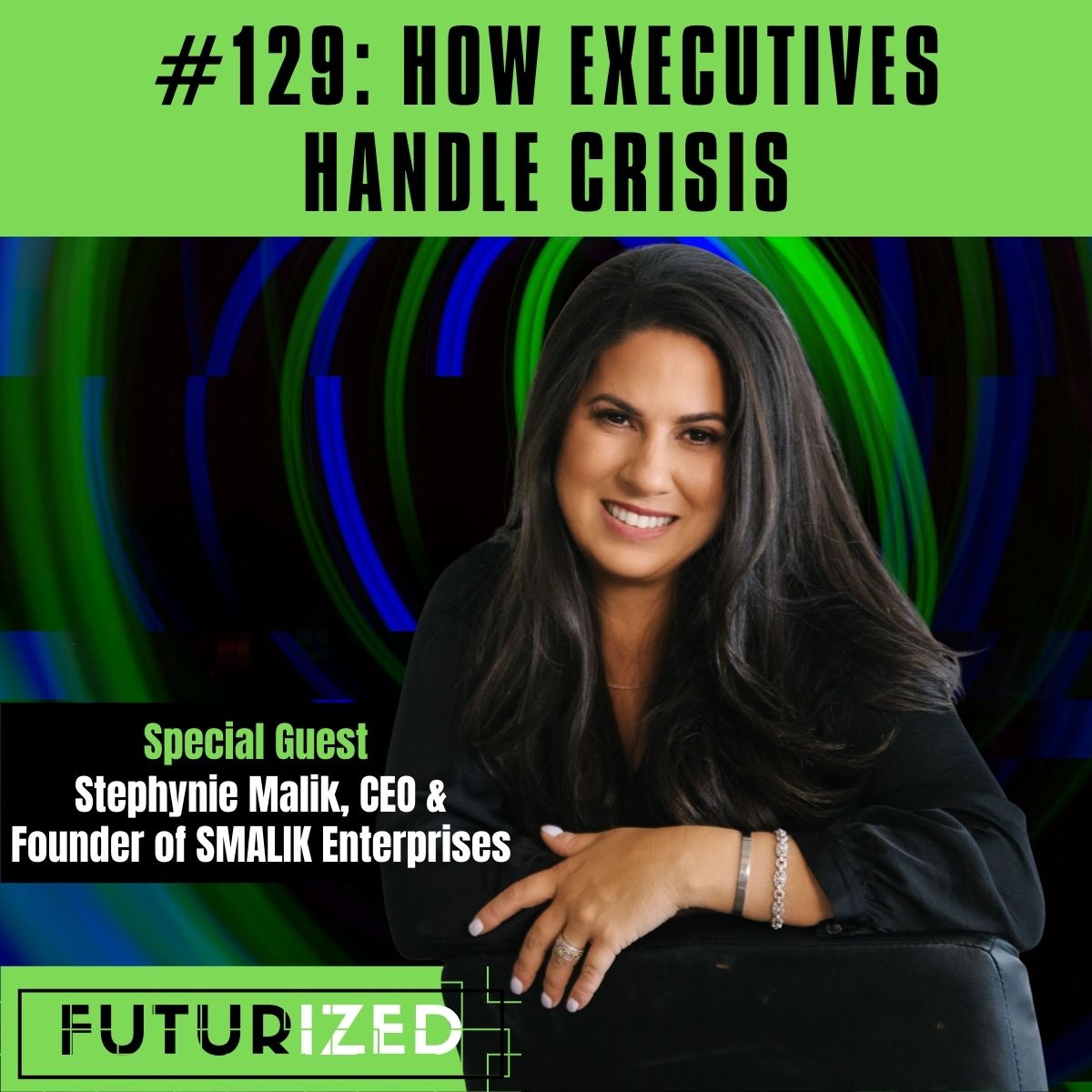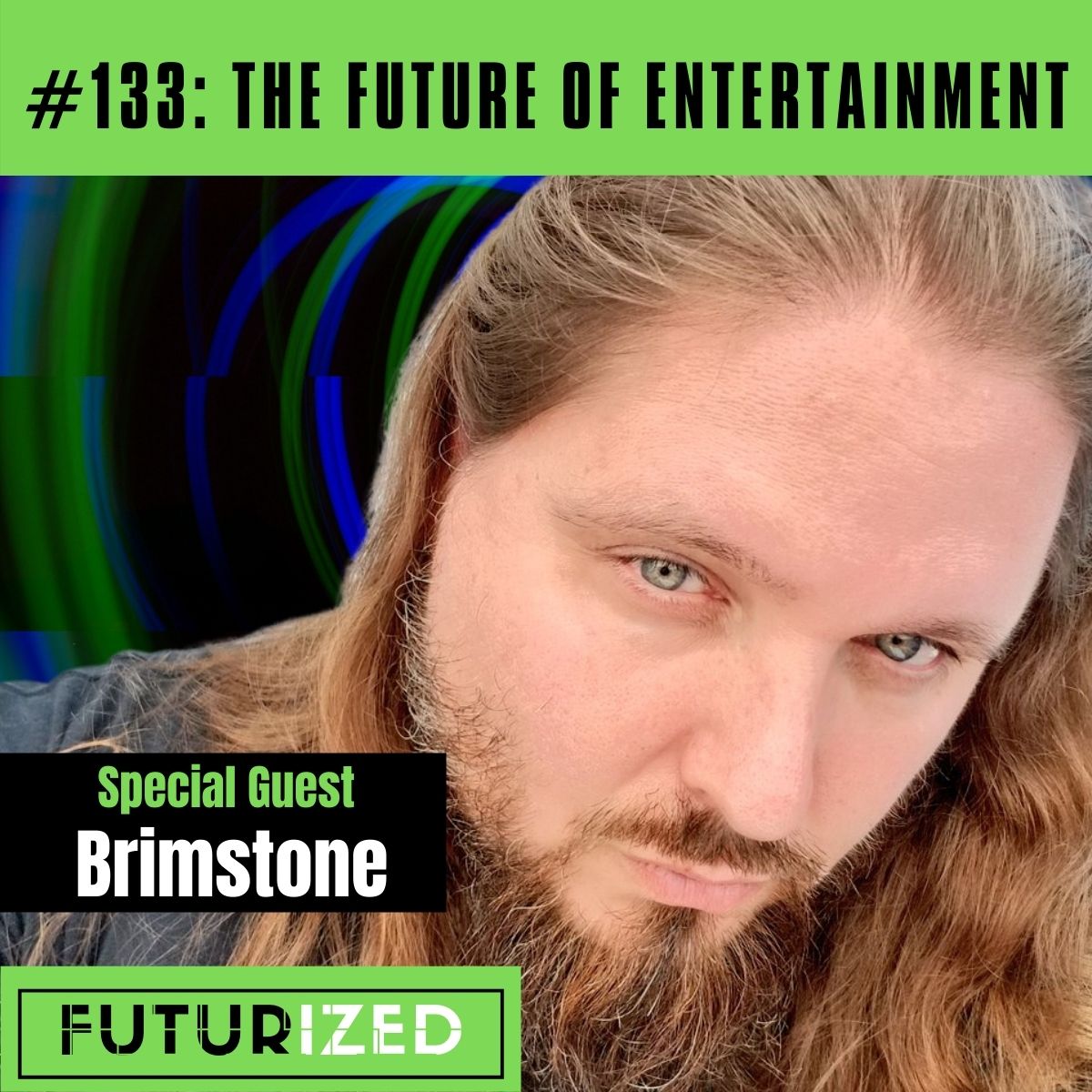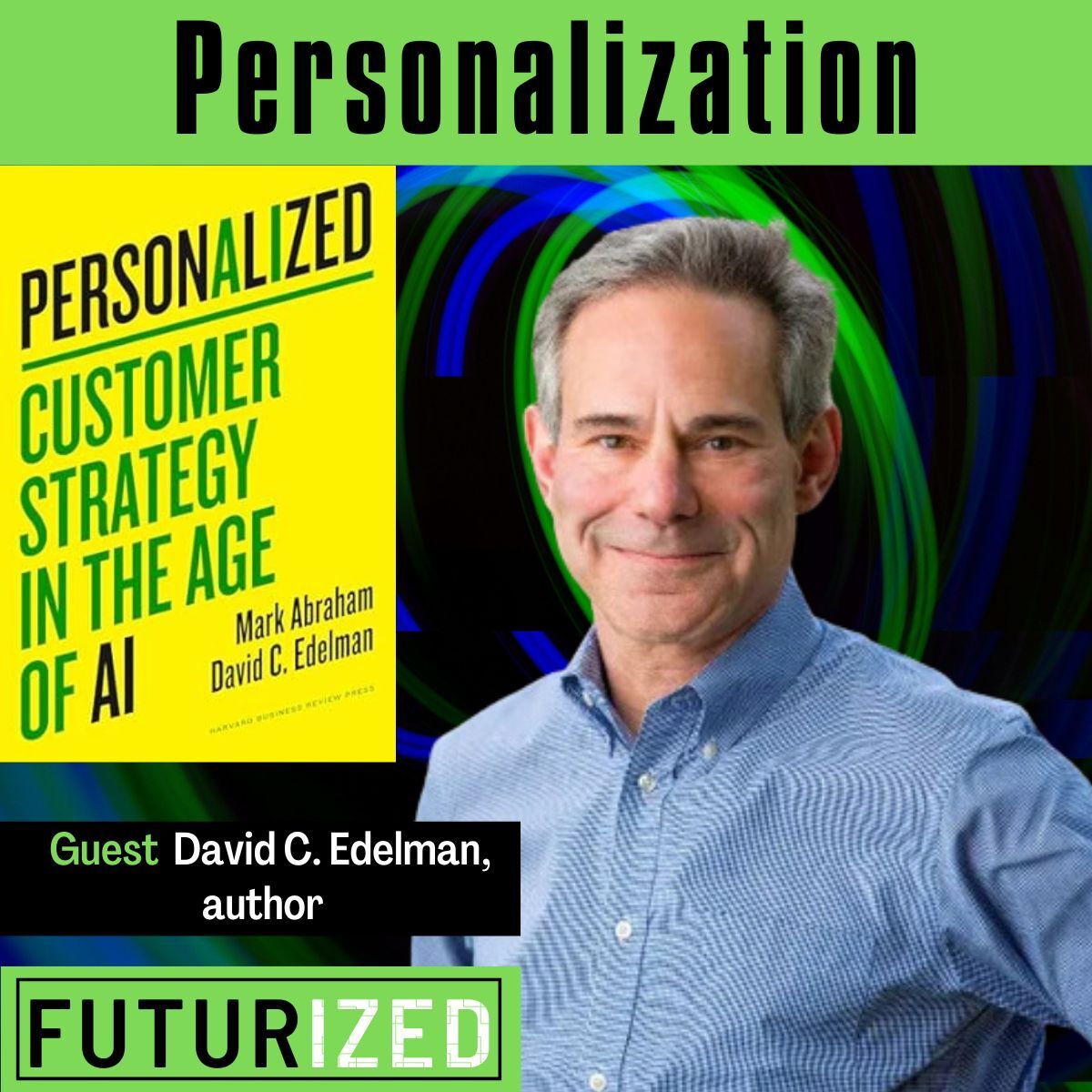The path towards Science 2.0
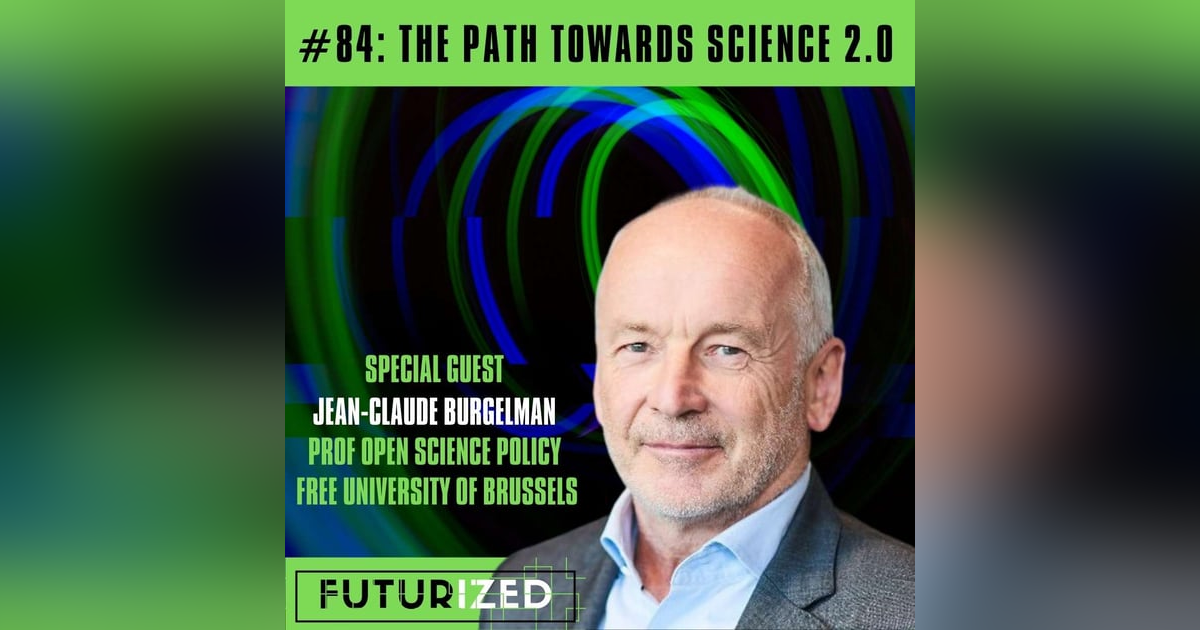
Jean-Claude Burgelman, Professor of Open Science Policy at the Free University of Brussels, interviewed by host Trond Arne Undheim.
In this conversation, they talk about The Impact of Digital on Science. JC Burgelman’s career spans the EU, foresight, Me...
Jean-Claude Burgelman, Professor of Open Science Policy at the Free University of Brussels, interviewed by host Trond Arne Undheim.
In this conversation, they talk about The Impact of Digital on Science. JC Burgelman’s career spans the EU, foresight, Media, and tech assessment. We discuss the role of foresight in EU policy. What are the big challenges? Fallout of COVID has compelled science from closed to open, from premium to collaborative. Is a 5th revolution in science irreversible? What has been learned? We talk about how the business model is shifting from articles to data and touch on next decade’s science and publishing.
My takeaway is that data is the new oxygen and science is opening up. How quickly will it happen? Quicker than you would think. Yet, proprietary publishing models still have some gas in the tank and don't misunderstand that with open science everything will somehow be free. Scientific institutions, teams of scientists, and perhaps even individual scientists, will, rather, be able to price themselves more accurately. There might be a bigger discrepancy between good science and bad science, and perhaps less of the latter.
Having listened to this episode, check out Frontiers Policy Lab as well as Jean-Claude Burgelman's online profile:
- Frontiers Policy Lab: https://policylabs.frontiersin.org
- Jean-Claude Burgelman (@BurgelmanJean): https://www.linkedin.com/in/jean-claude-burgelman-528a7566/
The show is hosted by Podbean and can be found at Futurized.co. Additional context about the show, the topics, and our guests, including show notes and a full list of podcast players that syndicate the show can be found at https://trondundheim.com/podcast/. Music: Electricity by Ian Post from the album Magnetism.
For more about the host, including media coverage, books and more, see Trond Arne Undheim's personal website (https://trondundheim.com/) as well as the Yegii Insights blog (https://yegii.wpcomstaging.com/). Undheim has published two books this year, Pandemic Aftermath and Disruption Games. To advertise or become a guest on the show, contact the podcast host here.
If you like this topic, you may enjoy other episodes of Futurized, such as episode 22 The Future of Engineering Education, episode 51 on AI for learning, or episode 55 AI for Medicine.
Open Science_mixdown
Trond Arne Undheim, Host: [00:00:00] Futurized goes beneath the trends to track the underlying forces of disruption in tech policy, business models, social dynamics, and the environment. I'm your host, futurist and author in episode 84 of the podcast. The topic is the path towards science. 2.0. Our guest is Jean-Claude Burgelman, professor of open science policy at the free university of Brussels. In this conversation, we talk about the impact of digital on science and JC Burgelman's career, which spans the EU foresight, media and tech assessment. We discussed the role of foresight in EU policy. And what are the big challenges? The fallout of COVID-19 has compelled science from closed to open from premium to collaborative is a fifth evolution in science, irreversible.
[00:00:54] What has been learned? We talk about how the
[00:00:56] Jean-Claude Burgelman, Prof, Free U of Brussels (guest): [00:00:56] business model is shifting from articles to data and touch on next decades, science and publishing
[00:01:04] Trond Arne Undheim, Host: [00:01:04] Jean-Claude greatest. Have you on the podcast?
[00:01:07] Jean-Claude Burgelman, Prof, Free U of Brussels (guest): [00:01:07] Hi, Toronto. Nice to meet you. Indeed, on this quite a special day. Yes.
[00:01:12] Trond Arne Undheim, Host: [00:01:12] It's been a, it's been a special day and night in the year.
[00:01:16] We are recording this right after the capital riot. So that is actually a great thing to mention. So people know exactly when this was recorded. John Claude, we have an exciting discussion, I think in front of us, which we'll touch on a lot of things that are happening in society.
[00:01:32]You and I know each other from the EU and you have a long and illustrious career, actually, they're working largely in technology, foresight like a lot of different areas within technology and policy making and science, and we'll get into all of those. But we met at the IPTs in Seville, so the European commission's foresight center there You have since moved on and you're taking out I understand a very active role in open publishing.
[00:02:01] Well, which we'll get to apart from that, you're also a university professor and in science and policy making, we'll get into the details. Let me ask you this. The impact of science and foresight on, on policy policymaking is Evolving rapidly, but it wasn't always a topic on everybody's mind.
[00:02:23] You were in foresight long before many people, even bothered. What was it that got you into this complex set of issues? Does this go back to your student days? Were you always involved in issues like this or has this more naturally of all of the last few
[00:02:41] Jean-Claude Burgelman, Prof, Free U of Brussels (guest): [00:02:41] years? No, it was actually a result of my, my, my PhD.
[00:02:45] So I did my PhD on the history of telecommunication and broadcasting policy in Belgium, where I looked at, how do standards in broadcasting and in telecom emerge and how the interplay between technology Colombian and politics and policy shapes, a new technology. And one of the, one of the books that I used in my part of my PhD was Hilda solar pool the famous MIT professor on technologies of freedom.
[00:03:16] And I was very seduced by that book because it actually looked at the future from this historical background. You also did some some very solid historic analysis to make predictions about. How technologies might emerge and not by taking a technology deterministic view. It's not because you have a certain capability that it will become a societal reality.
[00:03:41] That was something that I was really intrigued by. And from then on almost naturally this trying to say sensible things about how the field of information technologies, which. Was then exploding. I did my PhD in the eighties the beginning of the internet, the beginning of the microprocessor and so forth.
[00:04:01] So it went hand in hand with what happened in society. So try to understand where, what I then already taught would be a fundamental technology. Kill innovation would shape our future societies as been on my agenda in many different forms.
[00:04:17]Trond Arne Undheim, Host: [00:04:17] It's so interesting, John Claude, that you actually have a very distinct story about how you got into that subject.
[00:04:24] Many of the people I interview actually similarly ha have these very formative experiences, whether it's a book, a professor, a particular topic or a historical event, it's very interesting how. People's lives and literally for you years and years, so a very strong and involved research has come out of a book, one particular
[00:04:48] Jean-Claude Burgelman, Prof, Free U of Brussels (guest): [00:04:48] impetus, a book, and also a drive.
[00:04:51]My background is, so my degrees are in social science and the drive to make contributions to science from a social science point of view, which are more solid. That was my. Intellectual drive so that you don't have, you also know that feel that tone, that a lot of the social sciences in those days certainly so made this kind of journalistic evaluations, all the new technologies are bad, so it will only create the end of society as we know it.
[00:05:20] And our freedom will collapse and heal. The solar pool was one of the first. Do to go against that that current form, a very solid factual based kind of he didn't call it forecasting, but for me it was a forecasting way of doing things. And that was also my, my, my intellectual drag. So my. My, my attention as a researcher was the new game on the block.
[00:05:42] ICDs my drive as a scientist, we're trying to make more substance hated predictions about how things will evolve from a societal point of view, then impressive. Anecdotical evidence that in those days I taught social sciences were mainly doing.
[00:06:00] Trond Arne Undheim, Host: [00:06:00] So there's two things I wanted to unpack and you can decide exactly how you want to do that.
[00:06:06] But the impact of digital on science is one thing. And you were talking to that as well, but of course it's the shit, the changing nature of what forecasting and foresight is embedded in that question. But it has also evolved over time. So right now I understand that there's this term.
[00:06:26] Science 2.0, and maybe there's even a foresight 2.0, because at least the way I read the history of foresight in the origin story of foresight, they were also trying to, I may be. You agree with this, they went too far the other way. So instead of just being journalistic foresight got very predictive, right.
[00:06:49] And started using very quantified methodologies perhaps to its detriment because some of these Delphi studies and others were implying a lot of very scientific things when in fact. Arguably, nobody knows the future, no matter if you've talked to 10 people or a thousand people, you're right. And then Delphi was attempting to quantify the unquantifiable a little bit. Tell me how for you, what are the important concepts in this sort of situation today and how do you see that these topics have evolved up to today?
[00:07:21]Jean-Claude Burgelman, Prof, Free U of Brussels (guest): [00:07:21] Indeed I re I do think that's. When foresight tries to become predictive, this is not foresight.
[00:07:28] This is a marketing I'm now making it very vulgar. And because then you end up by doing extrapolation. You can only put in these robust models, things that you can extrapolate, which means by default, that you are incrementally doing some some Some predictions, so to speak, but that's not foresight.
[00:07:47]Yeah. And you don't need to be brilliant to predict now that we will have more mobile devices in the future, that we will have more internet in the future. It was a little bit more difficult in the eighties to try to imagine what an environment of communication technologies that would allow.
[00:08:06] If you want to communicate with everyone what did we do? And that I think is where the real power foresight comes in. If it is well applied that you think out of the box, not by inventing stories because that's science fiction but by trying to substantiate it as much as possible and, I have a very a friend of mine who wrote it was in those days, working at IPTs and who wrote the book is a finished.
[00:08:30] So it's from your side of the world. So he wrote the book networks of innovation. He made this analysis that too much predictive foresight kills foresight and his analysis was. Because it becomes impact analysis. And he said in Nokia, he was principal scientist in Nokia. One of the reasons Nokia got out of the market is because they want it to be informed about the next wave of innovation.
[00:08:55] And they wanted to have so much in depth knowledge about it, that they didn't dare to do anything anymore because the real disruptions in ICT are the non predictive ones are the ones which are not written on the wall, but which slowly emerged because of the interplay. Like I studied in my PhD in the past between technologies and societies.
[00:09:15]No one I read this morning an article by George Strong, who is from the NAS and, he's a well-known figure in the history of internet is probably one of the founding fathers. And he wrote this article of 75 years of computer technology and saying that no one of us foresaw the internet.
[00:09:32] No one of us foresaw. The success of web too. If when when took her back, started to Facebook, we would have done a predictive, quantifiable impact analysis on the future of Facebook. We will never, ever have predicted not even remotely what Facebook has become. So there is.
[00:09:51] There is this part of unpredictability of deep descriptions that, that, that plays. But what foresight can do is try to say hang on, these are dynamics going on here, which, which will explode in one way or another. We do not know exactly how it will materialize, but we know that this is more than a, an an incremental change, but a disruptive change.
[00:10:15] And that is actually how. If I look back at what I did in those 30 years is how we looked at the impact of digital. So we, we started by, in, particularly in, in IPTs in severe trying to understand the fundamental changes in the eighties, nineties that information technologies would have on the economy or social relations on education.
[00:10:38] And one of the last parts of that was well, okay. Now we have seen all this. We have seen how it has changed our our heal worlds. But the last part we looked at was the part of science. And that's where the work on open science started because in 2010, more or less, we started looking at okay.
[00:10:58]If in other parts of our society, like the economy digital innovation has really had disruptive effects. Can we assume that the same will happen in opens in science as a system? Not as as a practice, but as a practice as well, but as a system in, in, in particular. And of course it was a bit easier to do that in science because we had lessons learned from.
[00:11:23] How fundamental changes could be in the economy, the e-commerce to, to quote one of it, how fundamental changes could be in social Facebook, and what have you now could the same type of deep change, deep description be expected in science. And that's where we came up with. Not me only here, but around the world where we came up with this idea of We had fun.
[00:11:46] We went from web one to web two to indicate the change from the internet to, to application based services. Can we have a science one and a science to a version as well? So science 2.0 and that became then the work we did the last 10 years.
[00:12:04] Trond Arne Undheim, Host: [00:12:04] I want you to benefit from some of the experience you have working with the EU.
[00:12:09] Tell me a little bit about the evolution of. The argument also inside of the institution. So you worked, like you pointed out on the it side of foresight initially, and then you moved into science. Would you say that the. Institution, the European commission was more receptive and able to understand the science 2.0 argument versus kind of these more open-ended it predictions.
[00:12:33]Because right now it seems to me and maybe, you are the better judge of this, but the science 2.0 argument seems to have really been. Taking off, if you can, just, where did that way inside of the EU, there is this very deep sense. I think that there are some changes and I want you to speak about those, but would you say that foresight as a discipline has gotten more important in the EU over the
[00:12:59] Jean-Claude Burgelman, Prof, Free U of Brussels (guest): [00:12:59] last few years?
[00:12:59]The formal and your official answer would be yes. Because we even now have with the new commission. So with president from the sort of on the land, we have one of the commissioners who has a portfolio in his title on foresight. Now this is. To my knowledge, the first time in the history of the world, as long as you go back, that's a top political person has foresight in his job description, not in the description, but in the title.
[00:13:28]That means that at least at that level, formally speaking foresight is being taken very serious now. Has it always been the case? Yes or no. In the days we worked together in severe. We, so the commission created an Institute or foresight in the beginning of the, of this millennium.
[00:13:46] And we did a lot of work, not only me, but my colleagues as well on, on contributing from that perspective to the policies in Brussels. But the reason why it was. Deployed then. And why we were going to typically successful is because first of all, there were top people in Brussels who wanted it. So it was not systemic systemically part of the system.
[00:14:09] It was a personal relationship and we had directors in severe in particular
[00:14:18] Who really, who was a computer engineer from IBM and from the NATO, by the way who was absolutely convinced that in order to better grasp to make better research until technology policies, you needed to understand where these things are going. So the stages of foresight in, in Brussels has been flexible, flex has been volatile.
[00:14:39] It depends. It depends on the people. However, now, Being part as a formal task of the commissioners, it will become much more institutionalized. And that is something I've tried in vain. We've we've colleagues and friends from academia in 2013, 14, we had proposed or a way to embed foresight as a systematic, systemic and systematic contribution in decision-making in Brussels.
[00:15:07] That failed for many reasons. But but the truth is that there, but it is probably because again at some point we simply did not cross the skepticism of the policymakers because in the end they are the clients. If you're coming, if there is no commissioner wanting to buy this there is no reason for the bureaucracy to do it.
[00:15:28] Now, if I come. To, to the first part of your question, told him about the receptiveness of Brussels for this whole open science change. And the fact that I think it is fair to say that the commission has been one of the leaders in the world in, in, in developing the policy which is quite integrated.
[00:15:45]And me and my colleagues in Brussels, we played a big role in that. No, the reason why they are so receptive is again, it's not because it was institutional, there is an institutional anchoring or foresight in decision-making. But the result of on the one hand, a director general, some of the directors and some of the heads of cabinet of the commissioners who believed in what we were doing and who saw the value of it.
[00:16:13] But on the other hand and that is something very particular in science, because in, in the open science thing, because a lot of the scientists, a lot of the people hoovering around the systems in brussel who tried to influence the policymaking. A lot of the discussions in, in, in the scientific associations across Europe, went in the same direction as what we wanted to point out with open science.
[00:16:38]There was a demand for it, for inside the house, but there was also a push for it from the final clients of science, namely the universities and the scientists. And that explains, I think why we were relatively successful with a small group of people to push the agenda and to develop the policy.
[00:16:55]
[00:16:55] Trond Arne Undheim, Host: [00:16:55] That's fascinating. It reminds me actually, that one of your colleagues who shall in this context be a named at the end of my Sojourn there in Seville, he took me aside and said, Tron as a career advice, I know, I see that you're very interested in foresight, but I'm not sure if it's going in the right direction.
[00:17:12] So I think, he, this person was very conscious that it is, it's not, it's a topic, it's a volatile topic. And he was sensing at the time that at least in the context of the EU, which was our discussion, that it wasn't necessarily going in the right direction. So I guess.
[00:17:27]It's oscillates. But more interestingly, let's go into deep deeply into science, 2.0 what is science two point? Oh, it's very easy to say science one in science two, but clearly it has to do with digital, but in what way is digital shaping science too? When did it happen and what should we expect from science?
[00:17:50] 2.0.
[00:17:51] Jean-Claude Burgelman, Prof, Free U of Brussels (guest): [00:17:51] Okay. Con before, before we do that, I make a little prediction. I predict that the massive return of foresight due to coho now there are too many people saying some of us said it, why didn't you listen? Now we cannot afford, we lost a hundred, the a a hundred trillion dollar last year in the world economy.
[00:18:09]If we invest a fraction of that in force at capacities on next pandemics on next systemic challenges, we probably can win 99 trillion . So I really think that, that the case for it's probably better to finance a little bit, a few people running around, trying to come up with wild ideas than not having it at all this being said.
[00:18:32] So I come back to your question now. But it makes the point of the volatility. Of course, it's always a reaction to a crisis. So science 2.0 is of course what the, when we started working on it, we used the term science 2.0 to Mark. The difference with signs. One signs. One is the system, as we used to know it since world war two, the scientific system largely based on brilliant individuals, brilliant laboratories.
[00:18:58]Doing in-house their research premium premium based and so forth, publishing it. And then the next cycle of research. So let's say the internet one then, and then science 2.0 is it's not the opposite, but it's on the other side of the spectrum, whereby rather than having any, everything in house to modus operandi.
[00:19:20] Of working is by sharing. Why? Because sharing allows you to be fast, to be more collaborative. It is also a modus operandi of collaborative action across laboratories, of course, across universities. And it is in particularly suggesting that rather than having let's say, send the model. You have a sender receiver, sender model, so to speak in science.
[00:19:44] So anyone can contribute. On condition that the resources, data and publications are being shared. That's a long explanation. So it and we actually came up later home with what I think is a much better understood concept then. And we called it not via, but the people in the community called it open science.
[00:20:03] So you, you move from a closed size environment. To an open science environment, a little bit similar to the open source and the open software movement. So you have in-house premium development of software, or you can have the line small open science is the LINACs model and the old way of doing it is the proprietary model of the past.
[00:20:23] And that is the definition now, before we, we had our discussion, I Googled it in Google scholar, open science. You have cooked 3 trillion Heffernan Stuart. So there are so many things going on that, so what's in the name. The definition much more important is to see that it is a different way of doing science open, collaborative sharing based on open standards, which doesn't mean free based on open standards, on sharing of knowledge.
[00:20:50]And sharing of the whole life cycle. And it is much more than only producing an output. It is actually real time science being made available across the different actors of the scientific fields.
[00:21:04] Trond Arne Undheim, Host: [00:21:04] So Jean-Claude to what extent have all actors gone along with this? Because, I guess if you just take a similar thing in any industry and not that science is an industry or similar in its logic, if you look at any kind of revolutionary change in other fields, there's always institutions that have a little bit to gain in.
[00:21:22] Slowing that change down because they have some vested interests. So I could just imagine in Europe, there are some science academies that have done things in a certain way that have built up a lot of reputation on their brand alone. Now they're going to be expected to start sharing. There are publishers who have built up their massive fiefdoms around famous journals that are, That have all of their access criteria associated with them.
[00:21:47] How has this process gone and what are the important institutions that have started to embrace this and what are the tensions currently, if we look at sort of 20, 21 where do we stand with this open signs? Is everybody practicing it? Would you say, or is it 20% or where are we?
[00:22:04]Jean-Claude Burgelman, Prof, Free U of Brussels (guest): [00:22:04] It's a very good question.
[00:22:06] And first of all, Science by default is a conservative community. Scientists are extremely progressive and want to push the boundaries of everything except their own practice. So that is a, that's a taken, it's not a coincidence that a lot of these digital innovations comes lost in, in science.
[00:22:24] Secondly, any digital disruption has always been welcomed with skepticism. Why do we do need the internet? Why do I need to order flowers? Over the internet in New York, why do I go to yellow? Why do I need Facebook? That much better than me even. So you, by default and fundamental disruption is made by skeptics.
[00:22:44] The same happened with open science. So when we started working on it, beginning of the last decades, we got a lot of trouble making the argument inside the house, across Europe. And not everywhere, but it was always the same thing. It will open sharing will kill science sharing will kill the quality opening up results will invite to malicious scientists.
[00:23:09] So I had the PowerPoint in those days, what that only dealt with all these kinds of criticism and I one by one, I singled out, but hang on this and hang on that as a fault. Now I would say that today. And the resistance was there in the beginning, the academies, the established the as my friend Barbara moons from Latin university with whom I worked on the science clouds always say the silver backs in academia.
[00:23:36]These are the academies. They, of course too, that, these bureaucrats from bras, what the fuck do they, sorry, what the hell do they know? From science? So this is all nonsense and so forth. I would say that. So the main resistance was there indeed by the academies, surprisingly enough by the young scientists in particular, those who are on the threshold of making their career.
[00:24:00]And thirdly, the main resistance came from not resistance, but skepticism from the publishing houses. Now the academies, because there you have a generational problem. It is, it was quite clear to me that, it reminded me of the discussions when I did my PhD, when we introduced the. The computers at university, we had exactly the same discussion.
[00:24:23]If you write your PhD on a computer that you will lose the quality of your knowledge, that's a tough argument
[00:24:29] Trond Arne Undheim, Host: [00:24:29] to make these days.
[00:24:31] Jean-Claude Burgelman, Prof, Free U of Brussels (guest): [00:24:31] No, but that happened there. And you I'm sure that, I think there are still one of two professors at my university refusing to use the computer anyway.
[00:24:38] So that, that passed by your researchers made a much more substantial point saying that the empathy hang on. If we go for open publications where is the recognition from our work? And they're they conflate the two things that did not have to be conflated. So it is not because you publish something immediately openly available.
[00:24:59] That the peer review post has behind it disappears on the country without peer review, no science. It is just speeding up the communication cycle. So I would say that to a large extent, these researchers, once they understand that opening up their work and all those opening up their work leads to much more possibilities for interesting research, because you can combine data sets because you can much faster.
[00:25:28] Get to know what is going on Wednesday on the students. They were, they came on board because I, I told them, okay, all of you are you all member of research gate, you all member of academia, you, why are you a member? Why do you know? Because I find my peers immediately because we exchange ideas.
[00:25:42] I drop a question in research gate, do anyone know something about this? And I have an answer in a day that's open science. So that's one of the benefits, which would be impossible before that. And then finally the third group that, that was resistant out of skepticism and out of business models was the publishers to to a large extent the dominating to the big publishing houses until recently were skeptic about open science and open access because they feared that this would be detrimental to their business model, which it will.
[00:26:18] It's quite clear that if you kill all subscriptions and you all have asked for one fee, when you publish the article and then it is available to, for the rest of eternity, you have less heavy, you can still clear, but in the meantime, they have also understood that the future of scientific publishing is no longer only the article.
[00:26:36] The future is also publishing the data. The future is Paul's. It's also. Publishing or producing or developing the services to make sense out of the data that will lead to the article. So they are developing their businesses on everything that is underlying the article or before that. So they understand that just like e-commerce that it's no longer one product they're there.
[00:26:59] They've published there. That a unique selling proposition that unique selling proposition is being a platform for the whole life cycle of research and then get revenue from all parts of that platform. So all of that together and made that I would say that around 2018, 19 we the.
[00:27:24] The skepticism towards open science policy in Europe has gold. And it has become it now it's no longer a question. Yes or no. It's a question how to implement it. So universities across the continent funders across the continent are all implementing open access, open data, research, data management, plans, policies and strategies.
[00:27:46]Publishing houses, the big ones, Elsevier nature, all switching to open access models and LTV is launching an open access model every three days an open access journal. So every three days nature has recently announced to be available, to switch, to open access. Real or uniquely open access publishing houses like MBM MDPI or frontiers have huge, relatively speaking, huge success in terms of volumes.
[00:28:18]Why? Because, four tiers calculated this or an article that is downloaded immediately because available in open access is quoted 10 times more than a normal than the pay wall article. So if that is an argument that you bring to the scientist. Yeah. But hang on. If you publish open access, your work has 10 times more value of T times more output than normal open X.
[00:28:43]You don't need to say much more to make them choose a four for four when you outlet big publishing houses like Taylor and Francis and Wiley as bolts. Young incumbents faculty 1000 or hinder, we, which are open access perishing houses. So they, they bring them on board in order to understand how to do it, which is a little bit how the big players in ICT buy up all the new the new applications at Facebook by instant I'm buying WhatsApp when it was A Mickey mouse application, because they simply see that is now the new way to do it when you see exactly the same happening here.
[00:29:21] So I would just do
[00:29:21] Trond Arne Undheim, Host: [00:29:21] this so fascinating because what you're telling me and, I have been aware of open science for a very long time, but I haven't tracked it in any way in the detail that you attracted. And it strikes me that compared to a lot of other revolutions that are ongoing, this one.
[00:29:40] Is only known inside of a relatively small community. Of course, if you are a scientist, you're now dealing with this, right? Because you're publishing and you're making these decisions, but really largely, unless you are deeply steeped in science, this move that you're talking about that has been happening over the last three to five years.
[00:30:02] I do not read about it in any mainstream publication. Why
[00:30:06] Jean-Claude Burgelman, Prof, Free U of Brussels (guest): [00:30:06] is that? Wow. Science is it's a bit exotic. Scientists are a small scientific size, a small professional population, but not that small though. We have 2 million researchers in Europe, 10 million researchers professional around the world, but also, you don't read about it because it happens without people knowing that it happens.
[00:30:26] Let me explain this, if you don't mind that. So if you look at the last year, So many fantastic and less fantastic things happened. But so we had gone on the scientific community. Why we still have it, the scientific community reacted to that in an unprecedented way, a massive mobilization of his sources and people, but also in a completely.
[00:30:52] New way, all publications that were, and I think we have now 200,000 peer reviewed articles on kohona published, which is massive in terms of volume, in terms of speed. All these publications are immediately available and there were made immediately available by anyone contributing to it anywhere in the world, because they wanted the knowledge to be distributed much faster.
[00:31:19] Then the normal publication LA life cycle, which is between six months and two years. And then you have to pay for it. People said that the challenge of COVID is so massive that we must speed up. This is open access, the data underlying all this work where was stored and made available informants, that it was interoperable between the different players, why same reason to get better and faster results.
[00:31:46]In a large, to a very large degree, the way the science was organized, the Corona science were organized is a case textbook example of open science, but no one calls it that way. Because it is, I just do it. When my cardiologist in in, in India putting his data in a repository, in a format that is shareable by anyone, doesn't call it open science.
[00:32:07] He doesn't care. He makes his data available. So the facto it is happening. We'd all be in gold that way.
[00:32:15] Trond Arne Undheim, Host: [00:32:15] But John Claude, I'm sensing something here that is attention because you are at the one point are saying, this is moving from the publication to the data, being the business model, where you can earn the money.
[00:32:27] But on the other hand, if people are saying data is the new oil or the new oxygen or whatever it is, Supposedly, that means that it's valuable, but you're also saying increasingly with COVID they were letting some of that data out for free for surely money has to come in somewhere. Tell me all about this idea around data.
[00:32:47] Okay. I accept the argument. That data is more important, but I think a lot of us are wondering what's going to happen to ownership around data. So access and interoperability. Okay. That's a whole other issue. But there's still money flowing and there has to be money flowing for these systems to be sustainable, as fully open sourced database for all of life science.
[00:33:12] Doesn't strike me as a big incentive for even for vaccines, in the long-term, but certainly not for other types of drug discoveries, if we want those to keep happening. And that's just one part of science. And then, you can think about population level data in health or any other domain generally.
[00:33:28]So tell me, what are these new business models around data that you find commensurate with open science, but still leaving a way to earn money, either as a researcher or as an industry, or even, as a government?
[00:33:44] Jean-Claude Burgelman, Prof, Free U of Brussels (guest): [00:33:44] Yes. First of all it's a very legitimate question and we were confronted with it many times because.
[00:33:50]The mistake in the reasoning is that open is equated with free. And that's not the case. It's not because I make my data available that I give away my copyrights or my patents. Nothing will change there. Nothing at all. What I do give away is of course that the exclusive use or he interpretation of my data, that's for sure.
[00:34:21] But that I, there are many studies proving that once data have been used, the same group, never ever uses them again because they move on with something different. So the data are produced, they're stored somewhere and then they are lost for eternity. The argument that by making the data available, you lose the spin-offs of the data is simply a role argument because you can still copyright patent.
[00:34:47] You can do what you want there. We are not talking about communist science and we are talking about open side. So there is much more business to be made in because it goes much faster and you can much quicker come up with new ideas. By sharing this then by keeping it premium inside the house.
[00:35:05] And who gave me that idea? That's a little story that I can tell you if you want. I was once invited at the world economic forum in Davos in the beginning when we started working on it. Because I was part of an expert group of the world economic forum, and I, we went there to 50 centimeters of snow and at seven.
[00:35:25]The system in the volts is you have to book your rooms, you get invited to LA it's it's a it's quite cacophony. But anyway, I got invited for a seven o'clock breakfast meeting by the C T O of night. And it was a little groove, a little meeting, seven o'clock in the morning, dark gold.
[00:35:43] That was that meeting, like the book of a Hill, the solar pool that made me think a lot because the guy was saying, listen, if the, in those days, if after two years, what we have patented is not being used for a new product in my company. I give it away. I just give you the way to the open. Anyone who wants can make a product on condition, that it is not competitive with something that we have.
[00:36:11]And then, that's quite logical that if I take his pattern to make a shoe, to be competitive with Nike, that could not happen. But if I want to use it to use better camping gear for the Amazon or for heifer G camps in, in that was the exact, if I remember 10 years ago, that was the example again.
[00:36:29] Go ahead. I might take a share VMR venture capital branch in your spinoff, and there we go. That's actually the how sharing and that's also how Google that's also how most of the software companies work. They
[00:36:43] Trond Arne Undheim, Host: [00:36:43] said sites, some field of use restrictions in the patent, but they let other people use it on, as a platform of innovation.
[00:36:49] Jean-Claude Burgelman, Prof, Free U of Brussels (guest): [00:36:49] Exactly. And the point he made is that sharing is better for business than keeping it premium. And then we had a whole discussion that morning. The old model of the ICT industry, IBM, having everything, in-house hundreds of thousands of people, massive amount of patents being completely bypassed by startups like Google, like Microsoft, like FA in those days.
[00:37:12] Fascinating.
[00:37:13]Trond Arne Undheim, Host: [00:37:13] That is that's even
[00:37:14] Jean-Claude Burgelman, Prof, Free U of Brussels (guest): [00:37:14] possible. And why can you compete? Why could they compete with Google? Because they share if IBM, because they share, otherwise it would have been impossible. And the same, so the same goes for open sources. So everyone was in the beginning laughing at at line nukes and red.
[00:37:31] And what is it? The software company that, that offers the services or my next Reddit I forgot the name anyway. It was Nope. Red hat. Yeah. So he just hoped it was sold to 5 billion, two years ago, too. In Microsoft, I think so that's not bad for something new with the, where there was no businesses.
[00:37:49] So you see, I think this is the same for the whole open science argument. But what is fundamental? The fundamental point you touched about Tony is that it can only work the sharing if there is reciprocity. So I share with you, if you share with me, otherwise it, I give it to you. And secondly, if there is traceability of the data, So that in whatever happens, one can see that at the origin of all this, there was a tone, or there was Jean-Claude at some point in time and that I get credits for it at some way, in some way
[00:38:28] Trond Arne Undheim, Host: [00:38:28] I wanted to move now towards the end here towards even into the future.
[00:38:33] Just benefiting again from your foresight, because there's so much going on right now. That's we have covered. That's not commonly known, but on the other hand, let's look into the next decade, uneven even a little bit beyond Jean-Claude. So let's say you're right. Open science is moving ahead at speed. And.
[00:38:56] Corona and the importance of the COVID phenomenon is leading. You just told us to an increased interest in foresight. What is all of that foresight going to generate? And what kind of society are we looking at? Where, how deep will these changes? How deeply will these changes impact? Society in the next 10, 15, 20 years.
[00:39:21] What are we looking at? Are we looking at the typical crystal ball predictions of the seventies and some projections to, 10 X, 20 X, 30 X better? Or are we looking at. To flying air, flying cars. And actually we are already looking at flying cars. W where are we moving?
[00:39:37]What are the big shifts that you are, would be looking at? If someone said, design the new foresight study, what are the aspects? Is it even possible to chart the dimensions right now for what? This open science, even just taking that phenomenon, where is that going to lead us? How different is science going to be now?
[00:39:57] 10
[00:39:57] Jean-Claude Burgelman, Prof, Free U of Brussels (guest): [00:39:57] years from now. Indeed, I think so. So to be faithful to what we started discussing with that, the most important thing foresight can do is not a short-term tendinosis, but long-term disruptive changes. I think that we are moving to, to, to a new paradigm in science whereby. Not the paradigm, but the new reality in science whereby the publishing of data will be the most important and product of the scientific process and the article or the texts for most of the sciences will be the negative to understand the data.
[00:40:38]I think we will go to C to B because that's what you see as far as I understand it, at least as a normal life scientist. So that's what happening in, in in the Corolla research, it's a continuous stream of new correlations causalities testing hypothesis that are being published with an explanation on top of it, to make sense out of the graphics.
[00:40:59]But it's actually a lot of that number crunching is done machine based. And so the machine, the algorithms are traveling to the data sets, trying to find whatever is instructed to find, and then come back with the results. So a lot of the signs that will be produced to 10, 15 years old, the words.
[00:41:16] And again, that's an idea that I gracefully steal from my friend bargain is, will be machine mate. And the interpretation of it will still be human. Because someone had to go over, what is the relevance of all that in in, in the mid to long-term that, of course that's where the human will come in.
[00:41:35] But a lot of what we do will probably be a scientist will be a half the automated, a lot of the publications will be micro publications, a new causality and new algorithm, or what have you. It, of course there are exceptions, humanities, and so forth, but that is one thing. So science will just programming.
[00:41:54]So you will not be programming is no longer writing yourself, all the code. It is actually using software to to write a new code in a way that it is almost a natural language. So probably science will go in that direction because, and that is fundamental. What we, I think at least I think it is fundamental.
[00:42:16] What we see happening is that the status of science has changed. So it very short and very bluntly for a long time. The science has been, I produced an insight in an article or a book, and that's a unique view, which is there for eternity. Now we know now that is not the case in physics, in biology in, and suddenly the lower you go down to the soft sciences in economy and sociology and so forth.
[00:42:44] Everything we say now can be disputed in three to five years because we have new data to support it. So it will become a constant stream of no risk production rather than. Good using the unique insight, which is valid for eternity. That's where the Nobel prize came forward. You make such a contribution that it is there for the rest of it.
[00:43:05] Of the world. If you take most a Nobel prize in economics, most of them are already being challenged within five to 10 years after they were granted. So that's what that's, what I think is epistemologically. If I can use the difficult word is happening. The stages, the value of what you produce becomes different from a unique project for product, from eternity to a constant flow, probably one exception, which is mathematics, because if in mathematics, if you prove something.
[00:43:34] To be a or B. It is therefore most of the proofs are there for the rest of the, of eternity.
[00:43:40] Trond Arne Undheim, Host: [00:43:40] So Jean-Claude flowing from your very interesting argument here about the narrative and the data though. And the fact that some things aren't for eternity and that color, open signs in place, collaboration would.
[00:43:54] And I'm thinking back to the subject of your professorship of communication, are you've been working with the topic of communication also throughout your life. Will communication skills to then become almost like a fundamental core differentiator between a group, good scientist and a great scientist, or is it still going to be the interpretive human capability that's going to resemble?
[00:44:21] What a giant brain kind of a Newton type brain would do in the past. In other words, are these integrative skills still, pure sort of scientific IQ or is because of all this collaboration? I was just thinking that. The people who can organize that kind of communication, either as individuals or as teams or as organizations better than others, surely must have bigger advantages now than they had in the 18th century or even, 30 years ago with science.
[00:44:53] What is the implication there for. What is the exclusive domain of the scientific individual, in, in 10 years from that, what is, if you were educating the top brains of Europe, right? You wanted to design a crack team. What would that track, how different would that crack team be? 10 years from now versus 10 years ago.
[00:45:18] And what skills would you put
[00:45:19] Jean-Claude Burgelman, Prof, Free U of Brussels (guest): [00:45:19] into that team? That's a very interesting question. Because. It allows me to say something which I think is fundamental. I really think that the future of science and it's already there is the brilliant team is not the brilliant individual.
[00:45:32] So it is the complexity is of that matter, that one person, the old encyclopedia's dream of one person did the whole knows it all DaVinci knows it all and can say anything about everything. That's over in my personal view. Okay. You might have an exception every now and then.
[00:45:50]But even even there, I think it is the team that can best collaborate with the best available knowledge that they need for the problem they want to address will be the successful team. And those teams will probably be led by brilliant individuals, but the brilliance will be more in being able to manage it.
[00:46:07] Then being able to think it myself, that's my personal view. And if you take social sciences, one of the people I admire most scientifically is the guy is, but he is harvesting thousands and thousands of hours of work of all those all the books that the assembles and the people that work with him.
[00:46:27]Into a new story and the brilliance of varieties, of course, that he found a new story. So you will always have that, but he can only do that because you have all the risks under it. So that's one thing I wanted to say on that, in that respect. But I do think also to come back to what you said in the beginning, that what can we become extremely important in such a view of science as a data as a constant stream of knowledge?
[00:46:52] It's data visualization. If you follow my argument that most will become data publications, data driven, and then negative is the article. The easiest way to tell my story is by having a nice visual or an interesting visual, that visual can be complex, the visual can be can be simple, but it is crystal clear that you cannot make sense out of huge amounts of data by writing them out or putting them in an Excel sheet.
[00:47:20] You need to find other ways to make it visual. And that can be many different things. And that in itself is really what communicates the essence of data science much more than an Excel sheet or written article. So I do think that we statistics were the essential add on to science in the 20th century.
[00:47:43] Data visualization will be the essential at all to science in the 21st century.
[00:47:51] Trond Arne Undheim, Host: [00:47:51] On that note, I want to thank you for fascinating thinkings around cloud. These are important issues and it is actually interesting on this day that in the United States, at least, and perhaps around the world, Some people are thinking this was the darkest day in the history of the U S at least in the modern us, but there, and largely, a lot of this has to do with a denial of certain facts.
[00:48:15] So you could be pessimistic this morning, but I also feel very uplifted by your perspectives on science and communication, because indeed. It may be a subculture that is science, but it is a subculture that is increasingly potent and active. And, no matter what kinds of problems we are faced with, it would seem that we shouldn't be overconfident about what science can accomplish, because these things are after all, they take a lot of coordination, but there is some hope here and you at least give me the sense that open science.
[00:48:48] Clearly for you is an improvement and you seem cautiously optimistic, in that sense, give me a last take on that, is open science. Is it the ultimate paradigm? Do you think for science or are we likely to see a 3.0
[00:49:09] Jean-Claude Burgelman, Prof, Free U of Brussels (guest): [00:49:09] well, having been now following digital innovation for.
[00:49:13] Let's say since I was a student for 40 years, every time I taught, okay, now we had it first, the microcomputer then the internet than the web, then the mobile web, then artificial, then ambient intelligence and so on. So I think we, it would be a big mistake to think that there will be no science to people in Zika.
[00:49:34] Most likely it will happen. But my, what I would like to offer you as a last take is that, it is not because you have to, and that is painfully illustrating what, some of the evaluate of the evolutions in the U S lately, it's still because you have the best scientists that you have the best policy or the best politics.
[00:49:52]One does not lead immediately. To the other. And I do think that but I don't have the answer there at all. I do really think that we need to work much harder on bridging science with policymaking bead via foresights. That is certainly a very important contributor, but there should be much more.
[00:50:13] And, having been in, in the heart of the policymaking, I do know that you do not convince policymakers of the. Permanence of your science. We have a report that doesn't work. We need to find all the ways there without being populistic.
[00:50:28]Trond Arne Undheim, Host: [00:50:28] Thank you very much. I enjoyed this conversation.
[00:50:31] I hope our listeners did too. Have a wonderful rest of the day. Jean-Claude and we'll hopefully connect with you at a later station and get some updates in science
[00:50:40] three.
[00:50:41] Jean-Claude Burgelman, Prof, Free U of Brussels (guest): [00:50:41] Yes. Yes. If I'm still around, we do that and you thanks for the chat.
[00:50:46] Trond Arne Undheim, Host: [00:50:46] Great. You had just listened to episode 84 of the futurize podcast with host through non-event time, futurist and author.
[00:50:54] The topic was the path toward science 2.0 in this conversation, we talked about the impact of digital on science. JC Burgle months, career spans the EU foresight media and tech assessment committee discussed the role of foresight in the EU policy. What are the big challenges?
[00:51:13] Jean-Claude Burgelman, Prof, Free U of Brussels (guest): [00:51:13] The fallout from COVID-19, which had compelled science from close to
[00:51:17] Trond Arne Undheim, Host: [00:51:17] open premium to collaborative, and is a fifth revolution in science, irreversible.
[00:51:23] And what has been learned? We talked about how the business model is shifting from articles to data and touched on next decade science and publishing. My takeaway is that data is the new oxygen in science
[00:51:35] Jean-Claude Burgelman, Prof, Free U of Brussels (guest): [00:51:35] is opening up. How quickly
[00:51:37] Trond Arne Undheim, Host: [00:51:37] will it happen quicker than you would think yet?
[00:51:41] Jean-Claude Burgelman, Prof, Free U of Brussels (guest): [00:51:41] Proprietary publishing models.
[00:51:42] You still have some gas
[00:51:44] in
[00:51:44] Trond Arne Undheim, Host: [00:51:44] the tank and don't misunderstand that with open science, everything will somehow be free scientific institutions, teams of scientists, and perhaps even individual scientists will rather be able to press themselves more accurately. There might be a bigger discrepancy between good science and that's perhaps less.
[00:52:04] Thanks for listening. If you'd like to show
[00:52:05] Jean-Claude Burgelman, Prof, Free U of Brussels (guest): [00:52:05] subscribe@futurize.co or in your preferred
[00:52:08] Trond Arne Undheim, Host: [00:52:08] podcast player and rate us with five stars. If you'd like. Topic, you may enjoy other episodes of your trials,
[00:52:15] Jean-Claude Burgelman, Prof, Free U of Brussels (guest): [00:52:15] such as episode 22 on the future of engineering education
[00:52:20] Trond Arne Undheim, Host: [00:52:20] episode
[00:52:20] Jean-Claude Burgelman, Prof, Free U of Brussels (guest): [00:52:20] 51
[00:52:21] Trond Arne Undheim, Host: [00:52:21] on AI for learning or episode 55 on AI for medicine, futurizing preparing you to deal with disruption.

Jean-Claude Burgelman
Professor of Open Science Policy, Free University of Brussels
A Professor of Open Science Policy at the Free University of Brussels and the Editor In Chief at Frontiers Policy Lab at Frontiers, Jean-Claude Burgelman was responsible for the open science and data policies of DG RTD, European Commission. He joined the European Commission in 1999 as a Visiting Scientist in the Joint Research Centre (the Institute of Prospective Technological Studies - IPTS), where he became Head of the Information Society Unit in 2005. In January 2008, he moved to the Bureau of European Policy Advisers (attached to the president of the EC) as adviser for innovation policy. Since 1-10-2008, he joined DG RTD, as advisor and then Head of Unit in charge of top level advisory boards like the European Research and Innovation Area Board, the Innovation for Growth Group and the European Forum for Forward Looking Activities. Till 2000 he was full professor of communication technology policy at the Free University of Brussels, as well as director of the Centre for Studies on Media, Information and Telecommunication and was involved in science and technology assessment. He has been visiting professor at the University of Antwerp, the European College of Brughes and the University of South Africa and sits on several academic journals. He chaired the World Economic Forum’s Global Agenda Council on Innovation and was a member of its Science Advisory Committee.



































